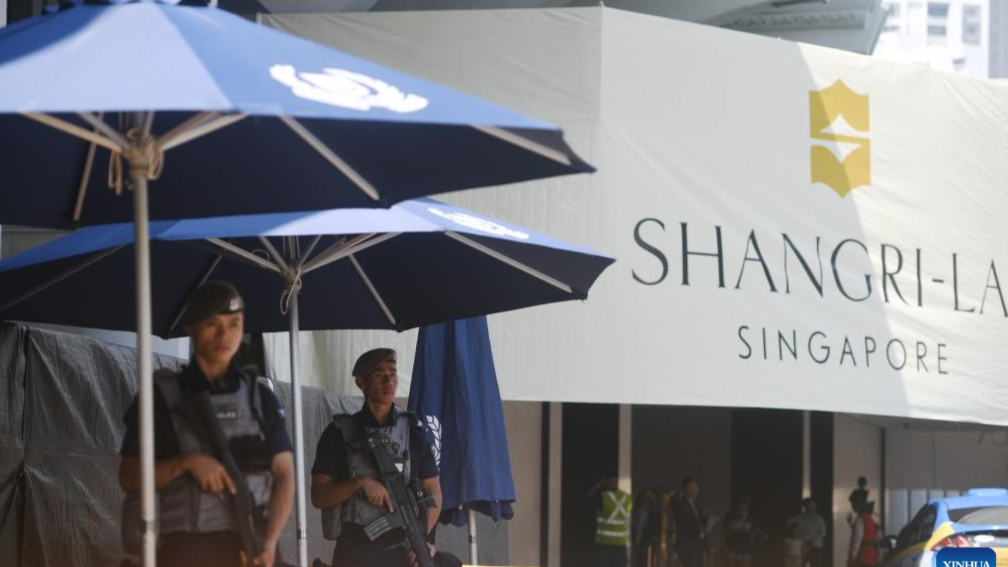
SINGAPORE - China's Global Security Initiative (GSI) can not only play a role in promoting more multipolar global governance but also serve as a framework for conflict mediation and dispute resolution, experts said ahead of the 21st Shangri-La Dialogue scheduled from Friday to Sunday in Singapore.
Bringing together defense ministers, senior officials, business leaders and security experts worldwide, the dialogue will discuss security challenges across the Asia-Pacific region.
Drawing significant attention, the Chinese delegation will elaborate on China's approach to global security, including the GSI that highlights the country's commitment to the vision of common, comprehensive, cooperative and sustainable security
Drawing significant attention, the Chinese delegation will elaborate on China's approach to global security, including the GSI that highlights the country's commitment to the vision of common, comprehensive, cooperative and sustainable security.
The China-proposed GSI holds significant importance in fostering a robust security and development environment in the region, Zhong Tianxiang, a regional media professional, told Xinhua in Singapore.
ALSO READ: Defense Minister Dong Jun to attend 21st Shangri-La Dialogue, visit Singapore
The people of this region are looking forward to China's GSI making a positive contribution to building a community with a shared future for mankind, as well as global peace and well-being, he said.
China's GSI has the potential to significantly promote stability and cooperation in today's volatile world, said Anna Malindog-Uy, vice president of the Manila-based think tank Asian Century Philippines Strategic Studies Institute.
By advocating mutual respect, sustainable security, and multilateralism, the GSI can contribute to mitigating bloc confrontations and fostering a more harmonious international environment, which is the dire need of Asia-Pacific with the world's largest and fastest-growing economies and crucial maritime trade routes, Malindog-Uy said.
Conversely, experts said, the Western security concept, represented by the United States, often overly emphasizes self-security, neglecting the aspect of common security.
READ MORE: Shangri-la Dialogue kicks off with challenges to Asia's security
Bambang Suryono, president of the Jakarta-based think tank Nanyang ASEAN Foundation, said the bilateral and multilateral cooperation frameworks established by the United States to maintain its dominance in the Asia-Pacific region pose a significant threat to regional peace and stability.
Senior Colonel Zhang Chi, an associate professor at the National Defense University of China, stressed a noticeable rise in US strategic anxiety.
Zhang, also a member of the Chinese delegation to the Shangri-La Dialogue, added that the Chinese delegation will effectively use the international multilateral platform to further promote China's GSI, as well as the vision of a community with a shared future for mankind.
Seven plenary sessions, two ministerial round-table meetings and six simultaneous special sessions will be held during the three-day dialogue, with the participation of more than 550 delegates from over 40 countries and regions.


